The Tulu film Koramma which hit the screens a month ago broke out of the “comedy template” that has been ruling the Tulu cinema industry for a decade. Directed by the national award winning director Shivadhwaj Shetty and produced by Eshwaridas Shetty and Rajeshwari Rai, the movie was released as the 133rd Tulu film on August 11, 2023.

A majority of the 41 Tulu films released during the first four decades (1971-2011) had themes of varied kinds. But since 2011, the focus of many films among the 92 released till August, 2023, have veered towards comedy genre due to the influence of Tulu theatre, from where the industry needs to branch out now. A handful of films did break out of the comedy template during the last decade and won State and national awards, thus showing the potential and strength of Tulu cinema.
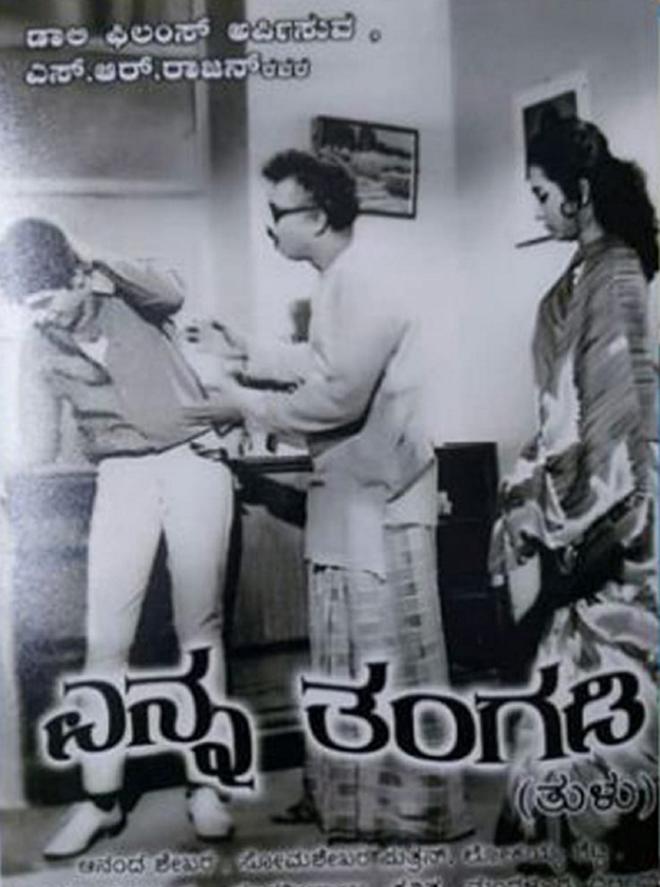
The story of Koramma revolves around an untouchable orphan eponymously named, who grows up in the cowshed of an “upper” caste landlord in a village during the 1980s. The tenor of the film shifts when the landlord’s city-educated son returns to the village at the behest of his father. Though the bond between the father and the servant is strong, the son sees it otherwise. The story sees human values slowly transcending caste discrimination.
“It reminds us how, in India, the deep rooted evil of untouchability was not won with bloodshed, but with resilience of the entire community and with love and affection,” Shivadhwaj Shetty told The Hindu. Earlier in 2008, Tulu cinema Gaggara directed by him and produced by M. Durgananda won the national award.
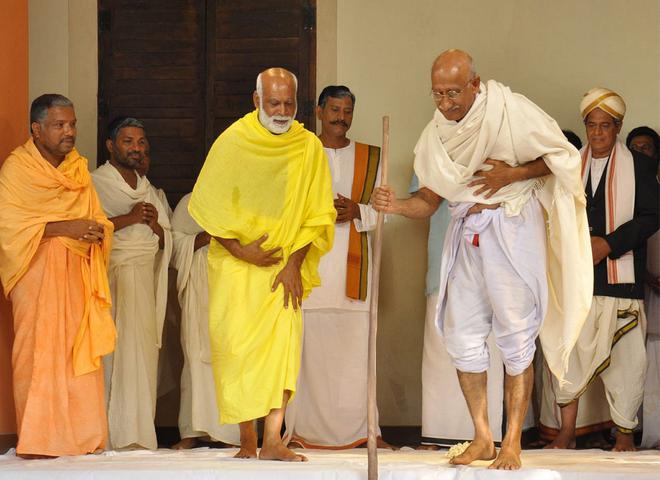
First Tulu film
Interestingly, the very first Tulu cinema Enna Tangadi (My Sister) released in Mangaluru on February 19, 1971, was not made by any person associated with Tulu language. It was made by Bengaluru-based Kannada actor, director and producer S.R. Rajan (or Sitharamu Raju).
Thamma Lakshmana, an art director associated with Tulu cinema industry, told The Hindu that Rajan who was shooting a Kannada film Aidu Beralu in Mangaluru during 1969-70 learnt that a Tulu film was being shot in Mangaluru. It was Dareda Budedi produced by K. N. Taylor and Narayana Putran. Immediately Rajan took on the Tulu project as he wanted to take the credit of producing, directing, and releasing the first-ever Tulu film. Rajan succeeded in his effort and he adopted the story of a Tulu drama Tage Tangadi, written by K. B. Bhandary, a well known Tulu and Kannada playwright. The film was released under the banner Dolly Films. Rajan completed the shooting of Aidu Beralu only later.
Lakshmana, who is the author of Kannada book tilted Tulu Belli Tereya Suvarna Yana, which has recorded the legacy of 50 years of Tulu film industry and was released in 2022, said that though the shooting of Dareda Budedi began ahead of Ennga Tangadi, it was released as the second Tulu cinema on March 26, 1971. Produced under the banner Sharavu Pictures it was directed by Arooru Pattabhi. The story and dialogue were written by Taylor.
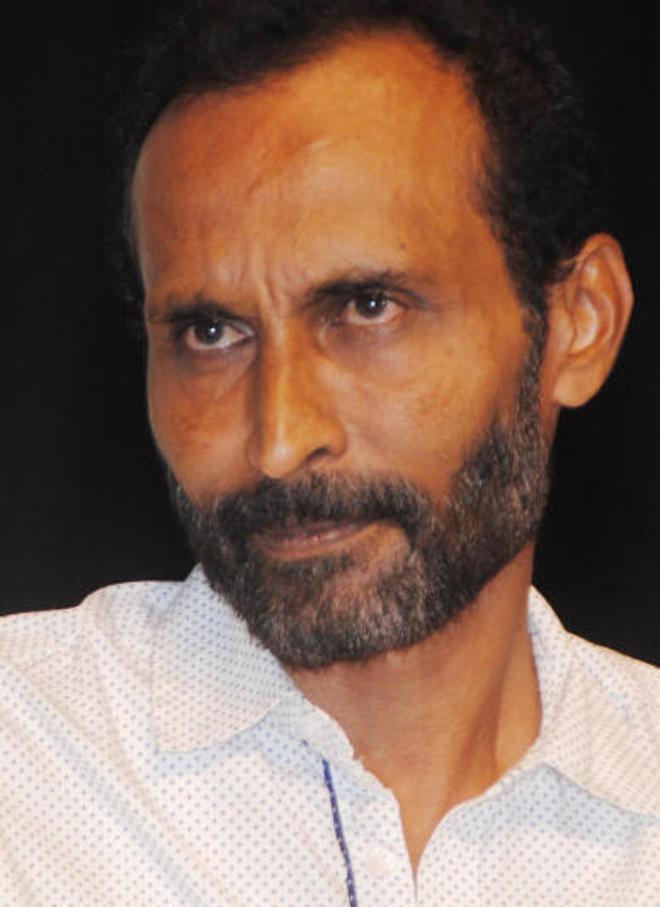
Some of the early films such as Pageta Puge (released on March 31, 1972) produced by Kadumatha Mahabala Shetty and Anand Shekar and directed by Arooru Pattabhi, Bisatti Babu (October 6, 1972) produced by M. Y. Koola and directed by Arooru Pattabhi and Badkere Budle (July 15, 1983) produced by Ram Shetty and directed by Arooru Pattabhi, initially lifted the Tulu cinema industry, said Lakshmana. Of them Pageta Puge was based on Kannada novel Hennu, Honnu, Mannu, and Badkere Budle was based on an Oriya story. Bisati Babu was the film to get the first State award.
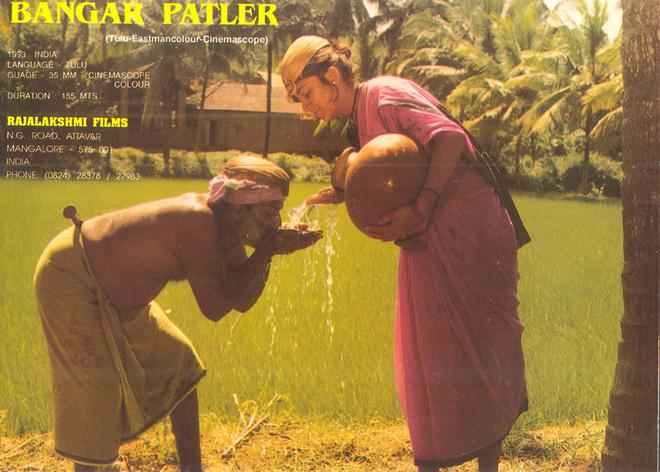
Growth over the years
The industry saw the release of 17 films in the first decade. In the next decade, only five films were released. Later 10 films made their way into theatres in the third decade, till 2001.
The industry which was in dormant stage for four years (2002-2005) recovered in 2006 and six films were released till 2010. Later, especially after the release and success of the comedy movie Oriyardori Asal (one is smarter than the other), produced by Roopa Vijaykumar, dialogue and screenplay by Vijayakumar Kodialbail and directed by Ha. Su. Rajashekar in 2011, the industry took a leap as about 10 films were released every year. The period between 2011 and February 2021, witnessed the release of 77 films. Thus 115 films were released in 50 years. In addition, 11 more films, though obtained censor clearance, were not released. About 20 more Tulu films are in the offing.
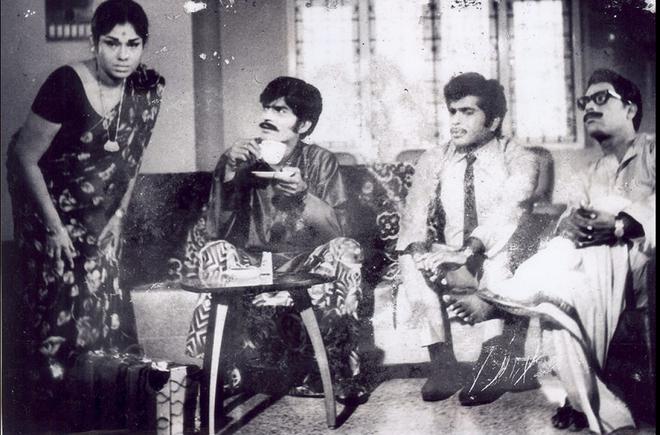
Awards and honours
In its journey towards golden jubilee year, the industry bagged seven national awards and 17 State awards. The films – ‘Bangar Patler’ (1992-1993) produced and directed by Richard Castelino; ‘Koti Chennaya’ (2006-07) produced by R. Dhanraj and directed by Anand P Raju; ‘Gaggara’ (2008) produced by M. Durganand and directed by Shivadhwaj Shetty; ‘Madipu’ (2016) produced by Sandeep Kumar Nandalike and directed by Chethan Mundady; ‘Paddayi’(2017) produced by Nityananda Pai and directed by Abhay Simha; ‘Pingara’ (2019) produced by Avinash U Shetty and D. N. Manjunath Reddy and directed by Preetham Shetty; and ‘Jeetige’ (2020) produced by Arun Rai Thodar and directed by Santhosh Mada – got national award.
Lakshmana said that Ram Shetty, Devdas Kapikkad, Prakash Pandeshwar, Kishore D Shetty and Vijay Kumar Kodialbail have produced many Tulu films in the recent years.
Reliance on some actors
Filmmaker and Tulu theatre personality Vijayakumar Kodialbail has said that the trend of producing only comedy films based on ready made formulas should change, and that filmmakers should focus on films with serious content too. It was possible to make a film based on a strong story in a reasonable budget, he said, adding that relying only on four or five comedy actors who came from Tulu theatre will make the audience grow weary of them over the years. Success of Tulu cinema cannot be measured only in numbers, he said.
“There were films screened for more than 50 or 100 days. At the same time, there have been films which were taken off from the theatres after a week,” he said, adding that Tulu content is yet to make a mark in OTT (over the top) platforms.
Lakshmana argued that a film producer should learn how to market a film too. It especially applies to the new producers. Released on October 31, 2014, ‘Chali Polilu’ produced by Prakash Pandeshwar and directed by Veerendra Shetty Kavoor, was screened for 511 days creating a record, he said, citing an example.
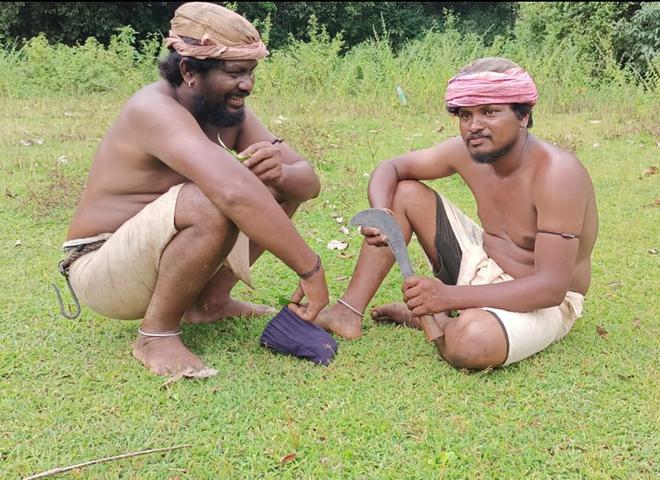
Strong story base buried
“Though some Tulu films produced in the last a decade had strong story base, heavy emphasis on comedy took it away the focus,” Lakshman said, stressing on the need to produce more quality films.
Shivadhwaj Shetty and Lakshman said that Tulu cinema is yet to reach a level of maturity to stand on par with some other regional language films. The stakeholders of the industry should seriously think over it.
“By the time Tulu cinema crosses the 175th mark, the industry is likely to have attained a level of maturity,” Lakshmana hoped, adding that unlike earlier years now audience are mature enough to judge a film based on the content and quality including the technical aspects. Hence a film maker will have to grow beyond formula.
Tulu has enough potential for producing movies that have a feel of the local language and culture, Shetty said adding that the strong content which the Tulu culture offers to filmmakers is yet to be exploited fully. It has enough potential to move forward by maintaining its own identity and there is also a need to create a new audience for Tulu movies, he said.







